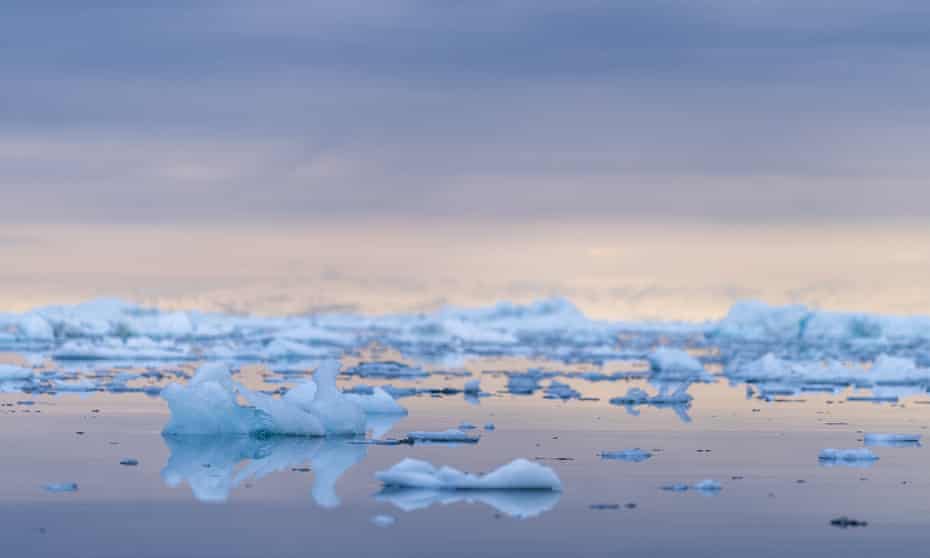Editorial
A heatwave at the north pole and collapsed Antarctic ice shelf are reminders to redouble our efforts, and focus on climate

Weather events in the Arctic and Antarctica bring warnings that climate breakdown could be accelerating.
Photograph: Ulrik Pedersen/NurPhoto/REX/Shutterstock
Fri 25 Mar 2022
A heatwave in the Arctic and the collapse of the Conger ice shelf in East Antarctica bring warnings that climate breakdown could be accelerating. There are signs of melting at weather stations near the north pole, with temperatures 30C above normal. In Antarctica, temperatures are 40C up. While the Conger ice shelf is too small to cause significant sea-level rises, its collapse points to growing instability. These weather events do more than offer proof of the dangers of global heating. They also risk triggering changes that could accelerate the disruption.
When policymakers and the public are focused on war in Ukraine and the rising cost of living, it is hard to be reminded of the existential threat posed by rising temperatures. But the extent to which climate has faded from consciousness in the months since the UN conference in Glasgow is frightening. If we are to avoid the worst effects of global heating, with around half the world’s population said by the Intergovernmental Panel on Climate Change (IPCC) to be highly vulnerable, it is imperative to make drastic changes to our global energy system.
Of course, extreme weather at the poles doesn’t affect people in the same way as in densely populated areas. But the truth is that even when large populations are harmed, dangerous weather events in poorer countries do not reliably catch and keep international attention. Generally it takes a crisis in a rich, developed nation for western audiences to take notice of what runaway warming could mean: the record-smashing heat dome in the northern US and Canada last summer, for example, or fires and heatwaves in California and Europe.
Even then, we are learning all the time how quickly memories fade, and how hard it is to keep climate at the top of the agenda. The world’s political and economic systems were not built to conserve the Earth’s atmosphere. Whether our human focus on short-term goals is learned or hardwired, and whether we regard governments, corporations or civilisation itself as responsible for the failure to dismantle our fossil-fuel-powered global system, one fact is known. As long as emissions keep rising, we are failing to prioritise our collective long-term survival.
It’s not only at the poles that we see climate disaster unfolding. In the Horn of Africa, conditions are the driest since 1981 and scientists believe the failure of three consecutive rainy seasons has been exacerbated by global heating. Somalia faces the risk of famine, with a million malnourished children. In November, Madagascar’s environment minister used the global stage of Cop26 to link high-carbon western lifestyles with the desperate hardship endured by people in her country due to climate-induced droughts – and the failure of western governments to deliver the climate finance that would pay for a pipeline.
Animals, as well as people, are doing their best to adapt to changing conditions. This week, US scientists revealed research showing that many species of birds are building nests and laying eggs around a month earlier than a century ago. Such adjustments are a vital part of the climate message. Without the hope they offer, that we can find ways to live in changed conditions, the danger is that the prospect becomes too scary, prompting reactions of either avoidance or despair. This was the message of the recent film Don’t Look Up, with it satirical portrait of a world hellbent on denial as scientists try to warn about an approaching comet.
It’s essential to stress that the climate crisis is not a comet that will instantly wipe out civilisation. In April, the IPCC will update its recommendations to governments on how to limit emissions. The shift to green power remains achievable. But time is running out.
No comments:
Post a Comment